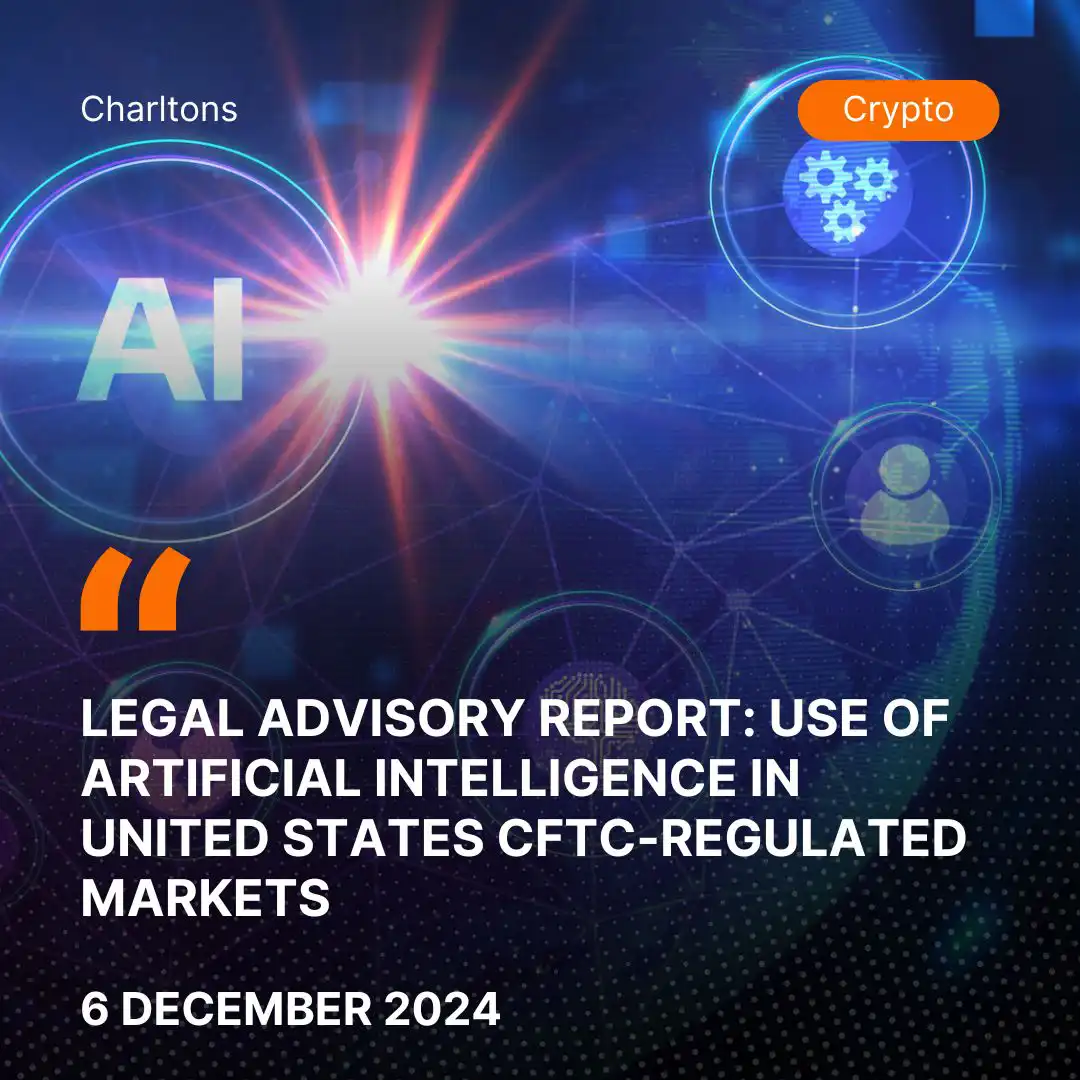
On 5 December 2024, the United States Commodity Futures Trading Commission issued an advisory concerning the use of artificial intelligence in markets under its jurisdiction. The advisory, released by the Divisions of Clearing and Risk, Data, Market Oversight, and Market Participants, aims to guide registered entities and registrants in maintaining compliance with the United States Commodity Exchange Act and associated regulations while adopting artificial intelligence technologies. This advisory recognises the transformative potential of artificial intelligence in derivatives markets and highlights the responsibilities of regulated entities to integrate this technology without compromising their statutory and regulatory obligations.
The advisory recognises the growing role of artificial intelligence in financial markets and the potential benefits and risks associated with its use. It draws on multiple sources, including public comments, industry engagements, and guidance from United States governmental bodies, such as the Executive Order on Artificial Intelligence issued in 2023. The report emphasises that the recommendations are not exhaustive and that each regulated entity must conduct rigorous assessments to ensure compliance. This advisory does not establish enforceable rights or create new binding rules but serves as a reminder of existing obligations under the regulatory framework.
The advisory outlines the obligations that registered entities and registrants must fulfill when employing artificial intelligence. The advisory states that compliance remains the responsibility of the regulated entity, irrespective of whether artificial intelligence systems are developed internally or procured from third-party service providers. The report stresses the importance of risk assessments, policy updates, and adequate controls to ensure that artificial intelligence systems align with existing regulatory standards.
The advisory addresses the specific obligations of designated contract markets, swap execution facilities, and swap data repositories when adopting artificial intelligence. These entities must ensure that artificial intelligence applications, such as those used for trade matching or market surveillance, uphold the principles of fair and transparent trading. For instance, artificial intelligence tools designed to anticipate trades or optimise resource allocation must preserve the integrity of the price discovery process as required by Core Principle 9 of the United States Commodity Exchange Act. Similarly, artificial intelligence-driven market surveillance systems must effectively detect abusive trading practices, such as wash trading and front-running, without replacing the need for robust human oversight.
The advisory also stresses the importance of system safeguards. Regulated entities must adopt recognised standards and best practices to ensure the reliability, security, and capacity of artificial intelligence systems. This includes measures for cybersecurity, disaster recovery, and performance planning. Material changes to automated systems that could impact their functionality must be reported to the Commodity Futures Trading Commission in advance to maintain compliance with applicable regulations.
Derivatives clearing organisations are expected to adhere to similar principles when incorporating artificial intelligence into their operations. The advisory recognises potential use cases, such as using artificial intelligence to detect cybersecurity vulnerabilities or enhance system reliability. However, these organisations must ensure that their use of artificial intelligence complies with Core Principles I, C, and D of the United States Commodity Exchange Act, which includes responsibilities related to risk management, participant eligibility, and settlement processes.
The advisory also highlights that outsourcing artificial intelligence services does not absolve derivatives clearing organisations of their compliance obligations. Organisations must retain accountability for ensuring that third-party systems meet regulatory standards. Any significant changes to automated systems must be communicated promptly to the Commodity Futures Trading Commission.
The advisory identifies potential applications of artificial intelligence for other regulated entities, such as futures commission merchants, commodity pool operators, commodity trading advisors, and swap dealers. These entities may use artificial intelligence for tasks ranging from risk management to recordkeeping. For example, artificial intelligence systems that calculate initial margin requirements or generate financial disclosures must ensure that such activities comply with relevant provisions of the United States Commodity Exchange Act and United States Commodity Futures Trading Commission regulations.
The advisory elaborates on the importance of customer protection. Futures commission merchants employing artificial intelligence to manage segregated funds must ensure compliance with stringent rules safeguarding customer assets. Any deviation from these standards would constitute a violation of the Commodity Exchange Act and associated regulations. The United States Commodity Futures Trading Commission will monitor developments in artificial intelligence and encourage regulated entities to engage proactively with its staff. The advisory suggests that artificial intelligence will remain a topic of discussion during routine oversight activities, such as examinations, and anticipates that future guidance or regulatory action may be required as the technology evolves.
(Source: https://www.cftc.gov/csl/24-17/download, https://www.cftc.gov/PressRoom/PressReleases/9013-24)





